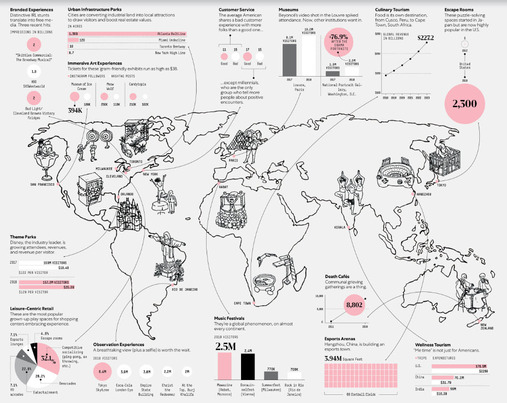When Airbnb launched Airbnb Experiences, in 2016, the move was an acknowledgment that modern travelers want more than a place to sleep. Many want quirky journeys, tours, and classes hosted by local experts. They want memories. Airbnb’s core product—easy-to-navigate online room and home rentals—had now become a service. To keep growing, Airbnb had to embrace the “experience economy.”
In a 1998 Harvard Business Review article, “Welcome to the Experience Economy,” authors B. Joseph Pine and James H. Gilmore identified experiences as an entirely distinct economic category. “An experience is not an amorphous construct; it is as real an offering as any service, good, or commodity,” they wrote. There’s certainly been a surge in supply and demand for experiences: Companies understand that immersive, “in real life” moments are harder for technology to displace, and that pristine customer service and beautifully designed interfaces are competitive advantages. Consumers, meanwhile, seem to be forgoing stuff for adventures: Experience-related spending in recent years grew more than four times faster than spending on goods, according to a McKinsey study of U.S. Bureau of Economic Analysis data.
View full size here [Illustration: Meredith Miotke]
Fast Company, with the support of SAP, set out to examine how the experience economy has evolved and expanded. We visited Google’s Design Lab to observe how the tech giant practices the art of “user experience.” We took a close look at Burning Man, the 33-year-old arts event that is struggling to maintain its identity amid the growing demand for cool gatherings—especially ones that look great on Instagram. And we offer a glimpse of funky and unexpected activities around the world, from ax-throwing bars in Milwaukee to an esports town in Hangzhou, China. The upshot? We hope you enjoy the experience of reading these features. —Stephanie Mehta
This article was written by Stephanie Mehta from Co. Exist and was legally licensed through the NewsCred publisher network. Please direct all licensing questions to legal@newscred.com.
![]()


